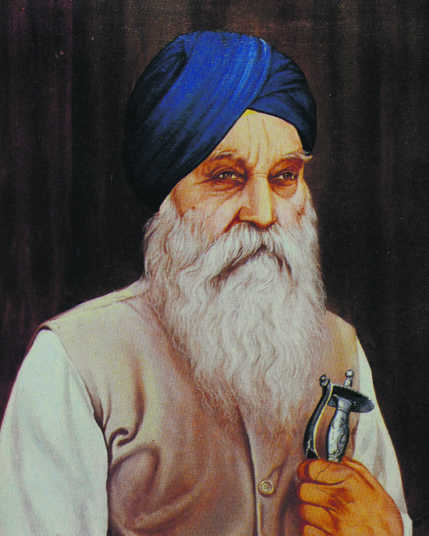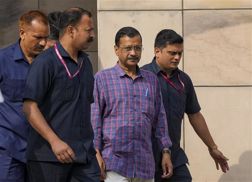
A portrait of Master Tara Singh Courtesy: Panjab Digital Library
M Rajivlochan
This masterly book captures well the ups and downs of the political life of Master Tara Singh which was singularly devoted to the Sikhs.
The first part of the book deals with colonial rule, the struggle for freedom and Sikh politics. The second part is about Akali politics and the manner in which the idea of a nation conflicted with the demarcation of linguistic states. Ten appendices, on disparate themes that could not be integrated in the main narrative, add value to the book.
The basic story of Master Tara Singh’s life and politics is well-known. This book fleshes it out. It adds finer nuances to it and manages to remain sympathetic to a man whose life was marked by constant struggles, and failures. At the time of the creation of the unilingual state of Punjab in 1966, a fight for which Master Tara Singh had suffered much, he had to face the ignominy of being known as a turn-coat, compromiser and worse, someone who did not stand by his promises. Such is life. It goes to the credit of this book that it still manages to empathise with the remarkable political struggles that Master Tara Singh launched. The focus on details makes this book of particular importance to anyone interested in knowing contemporary Punjab better.
Master Tara Singh was born in a family of Malhotra Khatris in a village of Brahmin landlords, as Nanak Chand. On adopting the Sikh faith later in life he was given the name Tara Singh. To this was added the appellation ‘Master’ when he took up his first job as a school teacher at a salary of Rs 15 per month. His family was not particularly rich but not badly off either. His father, Gopi Chand, was a Patwari in service of the colonial government and a well-respected person in the locality. Now, he was well set to follow that path of local respectability. Except that, Master Tara Singh was prone to consorting with the anti-British ideas. That made him a suspect in the eyes of the administration. The Lucknow Pact of 1916 seemed to him like a division of spoils of office between the Hindus and Muslims leaving the Sikhs to fend for themselves. In subsequent years, his debates with the Arya Samaj ideology further sowed the seeds of a view that the Congress was not up to any good as far as the Sikhs were concerned.
Master Tara Singh’s participation in the Akali movement began with a strong secular tinge. This book does not mention it but in the early 1930s Tara Singh was strongly opposed to the political manipulations in which the prominent leader, Baba Kharak Singh, indulged in in the name of ‘Sikhs in danger’. In the early 1930s, Tara Singh was of the firm view that religion and politics should not be mixed. The refusal of the Congress to condemn and reject the Communal Award of 1933 made him wonder though about the manner in which people like Nehru defined secularism and nationalist politics. In the subsequent electoral alliances with the Congress, he would take care that the Congress did not overwhelm the Akali identity. He also took note of the indifference of the people of Punjab to the individual Satyagraha movement of 1941. Therefore, when with the 1942 Quit India Movement, the Congress tried to raise the stakes against the colonial government, Tara Singh withdrew the Akalis from the Congress and stood in favour of support for the government.
The mayhem caused by Partition of India in the name of religion posed a particular dilemma to him: how to protect the interest and identity of the Sikhs while not succumbing to the evil created by the presence of religion in politics. It was in this context that he came up with the idea of protecting Punjabi as a language of the Sikhs. Subsequently, this transmogrified into a demand for a Punjabi Suba. Nehru, however, succeeded in scuttling that demand and marginalising Tara Singh. That was a humiliation which the Master could never overcome. Nehru had proven to be more adept at politicking than the Akalis and Master Tara Singh.


























